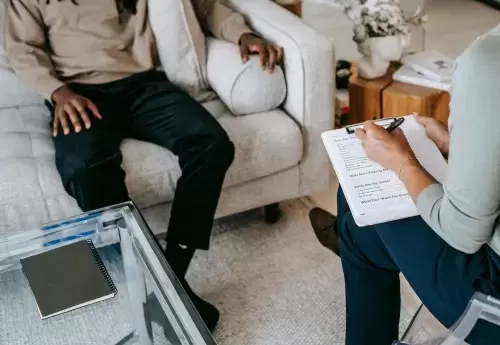
Mental Health America held the first day of main events at its 2024 Mental Health America Conference on Thursday with over 900 clinicians, advocates, and industry leaders attending in person and thousands across the country and globe virtually. The programming kicked off with remarks from MHA President and CEO Schroeder Stribling and Health Resources and Services Administration Administrator Carole Johnson at an opening luncheon.
The afternoon featured breakout sessions across the various conference themes of mental health innovation; local solutions to equity needs; youth and young adult mental health; policy and advocacy; and community responses to disaster and humanitarian crises.
When attendees gathered back at the main stage in the early evening, Mental Health America’s young mental health leaders joined Stribling and MHA Board Chair Pierluigi Mancini in an annual conference tradition: the ringing of the Mental Health Bell.
During the early days of mental health treatment, asylums often restrained people who had mental illnesses with iron chains and shackles around their ankles and wrists. With better understanding and treatments, this practice stopped, and in the early 1950s, Mental Health America issued a call to asylums across the country for their discarded chains and shackles.
In April 1953, at the McShane Bell Foundry in Baltimore, Mental Health America melted down these inhumane bindings and recast them into a sign of hope: the Mental Health Bell. Today, the Mental Health Bell rings out hope for improving mental health and achieving victory over mental illnesses.
Following the bell ringing, Mancini presented Mental Health America’s highest award – the Clifford W. Beers Award. Created in honor of MHA’s founder, the award is presented annually to a consumer of mental health or substance use services who best reflects the example set by Beers in his efforts to improve conditions for and attitudes toward people with mental illnesses. Mancini presented this year’s award to Renee Jones, a dedicated mental health professional, speaker, and survivor advocate who overcame addiction and sex trafficking.
“I fought and fought and fought and I will not stop fighting. I am here today to let you know that Mental Health America, you and I will continue to fight in the open and be there for the ones that cannot fight for themselves,” said Jones in her acceptance speech, invoking one of Beers’ most famous quotes, “I must fight in the open.”
In the final event of the evening former Rep. Patrick J. Kennedy and Philomena Kebec sat down with MHA Board Member Madhuri Jha to discuss mental health advocacy and Kennedy’s latest book, “Profiles in Mental Health Courage,” which features Kebec’s story.
Kebec, who belongs to the Bad River Band of Lake Superior Chippewa Indians, discussed how healing for her is not just about medication or therapy, but about making structural changes, including elevating people in her community who are experiencing injustice.
“That is as much a part of my therapy as when I go and talk to my therapist every week,” she said.
Kennedy echoed the need for systemic change and addressing social determinants of mental health saying, “We don’t treat the main factors in helping people have stability…housing, employment — these are things that aren’t covered by insurance.”
He also called for political leaders and future presidential administrations to focus on mental health as a bipartisan issue.
“We’ve got a much bigger fight, it’s not a republican or democratic fight, it’s about getting this issue front and center,” he said.
The 2024 Mental Health America Conference continues through Saturday, Sept. 21.




